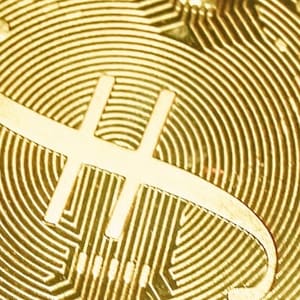nickel: Idiom Meaning and Origin
What does ‘nickel’ mean?
The idiom *nickel* means a small amount of money or a minor financial transaction.

Idiom Explorer
An idiom is a phrase that does not have a literal meaning. The idiom "save" means to keep money or resources for future use, or to rescue someone or something from danger or harm.
The idiom "pretty penny" means a significant or large amount of money. It is often used to emphasize the high cost or value of something.
The idiom "pin money" refers to a small amount of extra money that is earned for personal use or personal expenses.
The idiom "penny wise and pound foolish" means being frugal with small expenses while being wasteful with larger ones.
The idiom "penny for your thoughts" is a way to ask someone what they are thinking or feeling, usually when they appear to be lost in thought or deep in contemplation.
The idiom "pennies on the dollar" means to buy or sell something at a significantly discounted price, usually much lower than its actual value.
The Esoteric Definition
The term "nickel" is commonly used in American English with several meanings and uses. One of the most straightforward uses of the term is in reference to the five-cent coin that has been in circulation since 1866. The coin, made of nickel and copper, replaced the smaller silver half dime. It is named after its composition, with "nickel" representing the metal used in its production.
Apart from its literal meaning, "nickel" is also used idiomatically to convey the idea that something has little value or importance. This usage is derived from the low monetary value of the coin itself. When someone says that something "isn't worth a nickel" or "isn't worth two nickels," they are emphasizing its insignificance or minimal worth. Essentially, it means that something is not valuable or worthwhile.
Another related idiom is "nickel and dime," which refers to a situation where someone is repeatedly charged or pays small amounts that, over time, accumulate to a significant sum. This expression is often used in the context of financial transactions and business dealings, representing a sense of annoyance or frustration with the constant, incremental expenses.
Furthermore, "nickel" is also used in gambling to refer to a five-dollar bill. This usage originated from the practice of using nickels as chips in certain casino games. Although less common than the previous idiomatic uses, it is still noteworthy as part of the broader usage of the term.
It is interesting to explore how the idiom "nickel" has evolved over time. The term initially referred to the composition of the five-cent coin, which contains a significant amount of nickel. However, it has since expanded to encompass various idiomatic meanings. This demonstrates the complexities and subtleties of language, where a word can hold multiple connotations and evoke different associations in different contexts.
When examining the idiom "nickel" and its related idioms, it becomes evident that language is a dynamic entity. Words can go beyond their literal representations and acquire additional layers of meaning. This phenomenon is particularly true in idiomatic usage, where expressions like "not worth a plug nickel" further emphasize the lack of value or worth of something. It highlights the power of language to convey nuanced concepts and sentiments.
The idiomatic usage of "nickel" is prevalent in American English. It demonstrates the versatility of the language to adapt and incorporate new meanings and uses for existing words. Whether it is referring to the five-cent coin, expressing the lack of value in something, or emphasizing the frustrations of incremental expenses, "nickel" remains an intriguing term in the lexicon of idiomatic expressions.
The term "nickel" in American English has multiple meanings and uses. It can refer to the five-cent coin, signify the lack of value or worth in something, describe the frustration of incremental expenses, or even denote a five-dollar bill in the context of gambling. This demonstrates the complexity and subtleties of language, where words can acquire new connotations and extend their influence beyond their literal representation. The idiomatic usage of "nickel" is an example of language's ability to convey abstract concepts and sentiments.
Example usage
Examples of how the idiom "nickel" can be used in a sentence:
- He only had a nickel left in his pocket.
- I wouldn't give a nickel for that old car.
- She's watching her spending and pinching every nickel.
The idiom "nickel" is commonly used to refer to a five-cent coin in the United States. It can be used to indicate a specific amount of money, as in the first example sentence. Additionally, it can be used in an expression of disdain or worthlessness, as in the second example sentence. The third example sentence showcases the idiom's usage in a figurative sense, indicating someone's carefulness with money.
More "Currency" idioms



